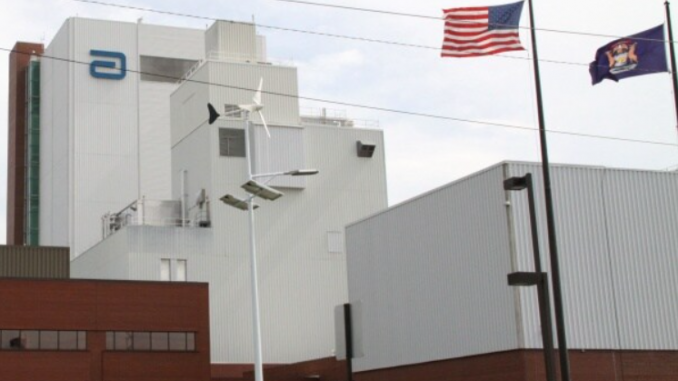
A whistleblower-based report alleges that Abbott Laboratories and federal regulators were warned of potential issues at a Sturgis, Michigan, food manufacturing plant in early 2021 — roughly a full year before a contamination incident forced a plant shutdown and eventually contributed to the nation’s baby formula shortage.
According to The Wall Street Journal, a former Abbott employee filed an OSHA whistleblower complaint in February 2021 with the Department of Labor, and cited a number of operational concerns about what apparently took place at the Michigan plant.
Also in February 2021, the Labor Department then shared the whistleblower complaint with Abbott and the Food and Drug Administration, asserting that the plant had failing equipment in need of repair and potentially released formula without adequate evidence that it was safe for consumption.
FDA inspectors subsequently uncovered a host of violations at the Abbott Nutrition plant, including bacterial contamination, a leaky roof and lax safety protocols.
A year later, the Sturgis plant closed after the FDA began investigating four bacterial infections among infants who allegedly consumed powdered formula from the plant.
Two of the infected babies reportedly died.
It’s worth noting, however, that no completed investigation has submitted any concrete evidence linking the infant deaths to formula produced in the Michigan plant; and Abbott maintains its innocence regarding whatever caused the infections, which apparently involved different bacterial strains.
The FDA has undergone scrutiny for taking so long to close the plant last year, and then renegotiate its opening in 2022.
The rationale: If Abbott had been cleared of any wrongdoing with the four infant infections, then why weren’t plant managers allowed to resume making formula in due time?
Agency leaders recently told Congress they had to enter “a legally binding agreement with Abbott” to ensure that all the problems were fixed.
An Abbott spokesperson recently told the Journal, “We investigated the federal OSHA complaint and have not been able to confirm the allegations.”
An FDA spokesperson also told the media outlet: “We know there have been various questions about the timeline of events leading up to the FDA’s warning and Abbott’s recall of products manufactured at their Sturgis facility.
“Our top priority right now is addressing the dire need for infant formula in the U.S. market, and our teams are working day and night to make that happen.”
The White House has taken heat for the baby formula shortage fallout, including President Joe Biden, who acknowledged last week that he wasn’t made aware of the national shortage until April — about two months after word spread of the Abbott plant shutdown.
“I became aware of this problem sometime in early April, about how intense it was. We did everything in our power from that point on,” Biden said in a White House roundtable discussion with formula manufacturers. “I don’t think anyone anticipated the impact of the shutdown of one facility.”
In the same meeting, however, a few speakers said they understood how the shutdown could have an immediate impact on formula availability.
“We were aware of the general impact that this would have,” said Robert Cleveland, a senior vice president at Reckitt, when responding to a question from Biden about whether the company was surprised the Abbott plant’s closing had “this profound effect immediately.”
“We knew, from the very beginning, this would be a very serious event,” Cleveland said.
Upon hearing about Abbott’s shutdown, Cleveland immediately contacted Reckitt’s retail partners, such as Target and Walmart.
Cleveland’s primary goal then: helping the retailers order all the available inventory on hand and push stock from distribution centers to stores.
The Sturgis plant’s reopening is expected to improve supplies in the coming weeks.
Via Newsmax
